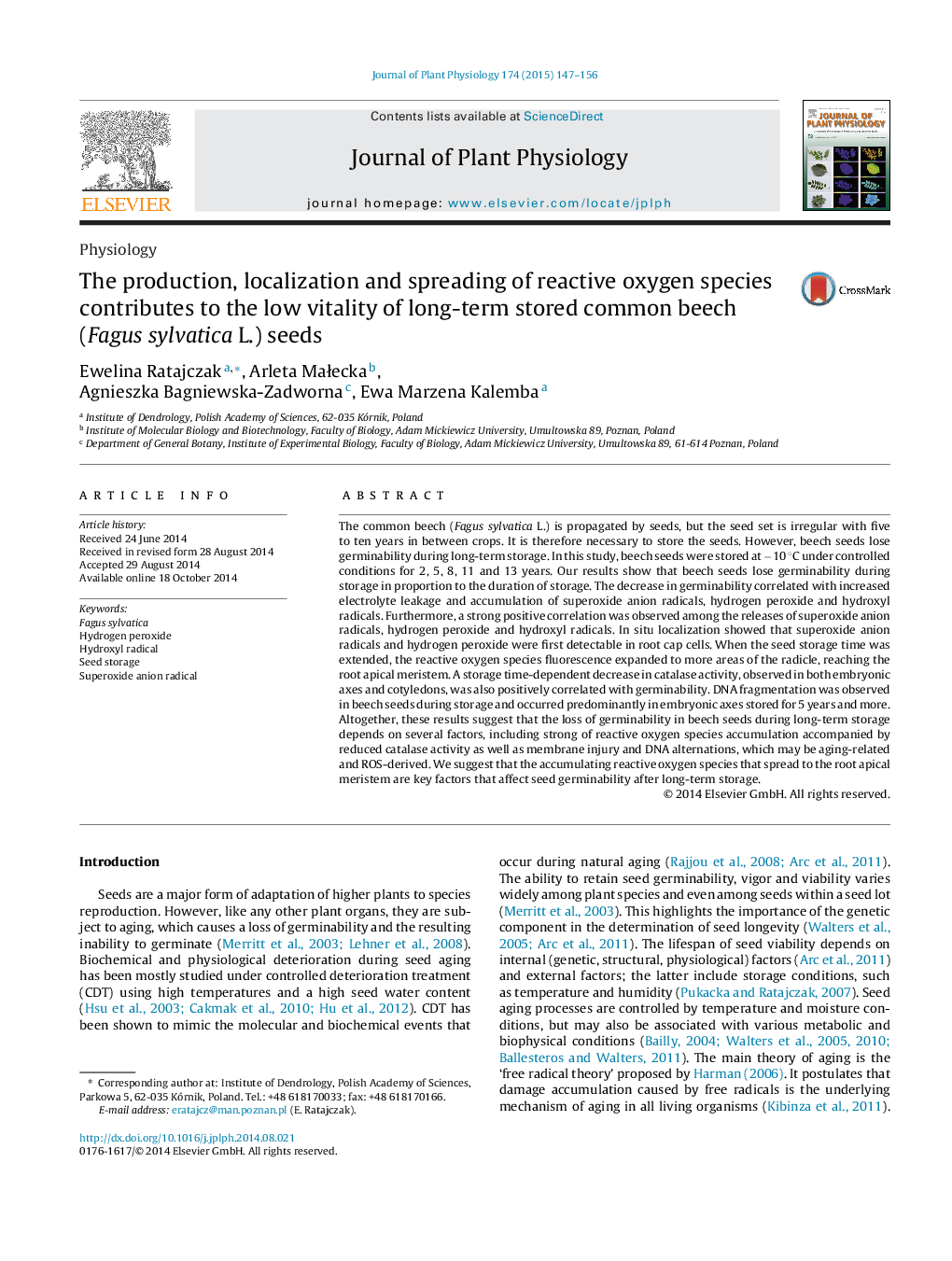| کد مقاله | کد نشریه | سال انتشار | مقاله انگلیسی | نسخه تمام متن |
|---|---|---|---|---|
| 2055789 | 1543902 | 2015 | 10 صفحه PDF | دانلود رایگان |

The common beech (Fagus sylvatica L.) is propagated by seeds, but the seed set is irregular with five to ten years in between crops. It is therefore necessary to store the seeds. However, beech seeds lose germinability during long-term storage. In this study, beech seeds were stored at −10 °C under controlled conditions for 2, 5, 8, 11 and 13 years. Our results show that beech seeds lose germinability during storage in proportion to the duration of storage. The decrease in germinability correlated with increased electrolyte leakage and accumulation of superoxide anion radicals, hydrogen peroxide and hydroxyl radicals. Furthermore, a strong positive correlation was observed among the releases of superoxide anion radicals, hydrogen peroxide and hydroxyl radicals. In situ localization showed that superoxide anion radicals and hydrogen peroxide were first detectable in root cap cells. When the seed storage time was extended, the reactive oxygen species fluorescence expanded to more areas of the radicle, reaching the root apical meristem. A storage time-dependent decrease in catalase activity, observed in both embryonic axes and cotyledons, was also positively correlated with germinability. DNA fragmentation was observed in beech seeds during storage and occurred predominantly in embryonic axes stored for 5 years and more. Altogether, these results suggest that the loss of germinability in beech seeds during long-term storage depends on several factors, including strong of reactive oxygen species accumulation accompanied by reduced catalase activity as well as membrane injury and DNA alternations, which may be aging-related and ROS-derived. We suggest that the accumulating reactive oxygen species that spread to the root apical meristem are key factors that affect seed germinability after long-term storage.
Journal: Journal of Plant Physiology - Volume 174, 1 February 2015, Pages 147–156